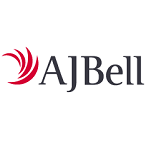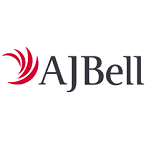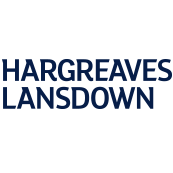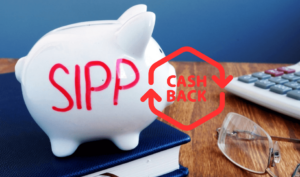SIPP providers offer a pension plan where you choose exactly what investments to include, rather than an investment manager. This gives you far more control over how your money is invested for retirement compared to a traditionally managed pension. We have tested, ranked, compared and reviewed some of the best SIPP providers and accounts in the UK that are regulated by the FCA.
AJ Bell: Best Overall SIPP Provider In The UK

- Investments: Shares, ETFs, bonds & funds
- Minimum deposit: £500
- SIPP account charge: 0.25%
- SIPP Dealing fee: Shares £3.50 – £5, funds £1.50
AJ Bell won “best SIPP provider” in our 2023 and 2022 awards. They offer a huge range of UK and international markets to invest in (with low FX fees). AJ Bell also scored very well in our survey for customer support and has an easy-to-use and low-cost SIPP account platform.

Jack Pattinson, of AJ Bell said: I think it’s a fantastic reflection of everything that everyone’s been working on at AJ Bell to make sure that investing is as easy and as accessible as possible for people, particularly at the moment.
AJ Bell SIPP Review

Name: AJ Bell SIPP
Description: AJ Bell offers the cheapest SIPP account when you compare them against providers that charge a percentage of your portfolio value. You can invest in a wide range of investments, including stocks in more than 20 markets, over 2,000 funds, ETFs, and bonds.
Capital at risk.
Summary
- Investments: Shares, ETFs, bonds & funds
- Minimum deposit: £500
- SIPP account charge: 0.25%
- SIPP Dealing fee: Shares £3.50 – £5, funds £1.50
Fees: AJ Bell offers the cheapest SIPP account when you compare them against providers that charge a percentage of your portfolio value. You can invest in a wide range of investments, including stocks in more than 20 markets, over 2,000 funds, ETFs, and bonds.
Special Offers:
- Up to £500 cashback: Switch your SIPP to AJ Bell and they will pay up to £35 per investment and £100 in exit fees as cash back to cover your costs up to £500.
- £100 gift vouchers: If you refer a friend to AJ Bell that opens an ISA or SIPP with more than £10,000 you both get £100 of One4All gift vouchers.
Pros
- Low SIPP account fees of 0.25% & share dealing commission
- Wide range of shares, bonds and funds
- Ability to add a Junior SIPP for your children
Cons
- High phone dealing charges
-
Pricing
(4.5)
-
Market Access
(4.5)
-
Online Platform
(4)
-
Customer Service
(4.5)
-
Research & Analysis
(4.5)
Overall
4.4Hargreaves Lansdown: Best SIPP Provider For Beginners

- Investments: Shares, ETFs, bonds & funds
- Minimum deposit: £100
- SIPP account charge: Shares 0.45%, funds 0.45%
- SIPP dealing fee: Shares £5.95 – £11.95, funds £0
Capital at risk
The best SIPP for beginners is Hargreaves Lansdown, they offer one of the best apps on the market and provide stock research and analysis on the most heavily traded stocks in the UK and US. Hargreaves Lansdown is also good for beginners because they are quite simple to use and have an excellent reputation for customer support from their Bristol based offices.
They may be a little more expensive that some of the other platforms, but you certainly get what you pay for.
Some SIPP accounts are better suited to beginners than others. Generally speaking, beginner investors require a SIPP that is easy to use, cost-effective, and offers access to products that are well suited to beginners such as ready-made portfolios.
So, if you are a complete beginner to SIPP investing and are not confident enough to choose what individual stocks and shares you want to own in the long term. A private pension may be more appropriate. One private pension account (which is not actually a SIPP because you can’t buy individual shares) that is well suited to beginners is Wealthify. Wealthify is a robo advisor (or digital wealth manager) that offers a managed pension product. With Wealthify, you choose an investment style based on your risk tolerance. One advantage of Wealthify is that the minimum investment is just £50. One downside, however, is that there are only a few investment options to choose from.
Hargreaves Lansdown SIPP Review

Name: Hargreaves Lansdown SIPP
Description: We have ranked Hargreaves Lansdown as the best SIPP provider in our 2022 Awards. The main advantage of Hargreaves Lansdown’s SIPP is that it offers access to a vast range of investments. Investors have access to domestic and international equities, over 3,000 funds, bonds, as well as plenty of research and investment tools.
Capital at risk
Summary
- Investments: Shares, ETFs, bonds & funds
- Minimum deposit: £100
- SIPP account charge: Shares 0.45%, funds 0.45%
- SIPP dealing fee: Shares £5.95 – £11.95, funds £0
Fees: Hargreaves Lansdown SIPP costs start at 0.45% of your portfolio value. The account charge for shares is capped at £200 per year. Funds are charged at 0.45% for the first £250,000, then 0.25% between £250k and £1m, then 0.1% between £1-£2m. There is no charge above £2m. There is no charge for buying funds, but shares are charged at £11.95 per deal or £5.95 if you do over 20 deals per month.
Pros
- Widest range of shares, bonds and funds to invest in.
- Get started with as little as £100 or a £25 regular investment
- Share fees capped at £200
- Excellent research & data to help you choose what to invest in
Cons
- Can be expensive for large fund portfolios
-
Pricing
(4)
-
Market Access
(4.5)
-
Online Platform
(4)
-
Customer Service
(4.5)
-
Research & Analysis
(4.5)
Overall
4.3Interactive Investor: Best SIPP Provider For Buying Funds

- Investments: Shares, ETFs, bonds & funds
- Minimum deposit: £1
- SIPP account charge: £12.99 per month
- SIPP dealing fee: £3.99 – £5.99
Capital at risk
Interactive Investor is the best SIPP for buying funds because of the flat fee. Both Bestinvest and Hargreaves Lansdown do not charge for buying and selling funds, but fees are high at 0.4% on the first £250,000 in your SIPP portfolio. The only downside of Interactive Investor is that you pay £7.99 for each fund trade, but you can reduce this to £3.99 by upgrading to a Super Investor for £19.99 a month which still works out cheaper than paying 0.4% on your portfolio if you have around £250k in invested in funds.
If you do not want to invest in shares and only want to invest in funds, then the cheapest SIPP for for funds and ETFs, is Vanguard who is one of the cheapest fund SIPP providers. Its SIPP has a low account fee of just 0.15% per year, capped at £375, investors also have to pay fund management costs of around 0.20% per year on average. But, your choices are limited to Vanguard funds, which makes the account more of a personal private pension than a SIPP account with complete control and flexibility.
Interactive Investor SIPP Review

Name: Interactive Investor SIPP
Description: One advantage of Interactive Investor’s SIPP is that it offers a flat-fee structure. This means that annual account charges do not increase as your SIPP grows in size. This structure can help those with larger SIPP portfolios save on fees.
Capital at risk.
Summary
- Investments: Shares, ETFs, bonds & funds
- Minimum deposit: £1
- SIPP account charge: £12.99 per month
- SIPP dealing fee: £3.99 – £5.99
Fees: Interactive Investor’s SIPP costs 12.99 a month for new customers, but if you already have a II shares dealing account you can add a SIPP for £10 per month instead of £12.99. Dealing commissions are a free trade every month, then UK Shares and Funds, US Shares charged £7.99 or upgrade to a £19.99 “Super Investor” account 2 free monthly trades and deal for £3.99. Regular investing is free.
Pros
- Flat account fee of £12.99 per month
- £1 minimum deposit makes it easy to get started
- Fixed SIPP account fee that does not increase with your investments
Cons
- Fixed fee expensive for very small accounts below £1,000
-
Pricing
(4.5)
-
Market Access
(4.5)
-
Online Platform
(4)
-
Customer Service
(4)
-
Research & Analysis
(4)
Overall
4.2IG: Good SIPP for shares and pre-made portfolios

- Investments: Shares, ETFs, investment trusts & pre-made portfolios
- Minimum deposit: £250
- SIPP account charge: £210 a year
- SIPP dealing fee: Shares £3 – £8
Capital at risk
IG SIPP Review

Name: IG SIPP
Description: IG’s SIPP account lets you invest in over 13,000 UK and US shares, funds and investment trusts. Or if you can buy into an IG Smart Portfolios are expertly managed, broadly diversified portfolios with exposure to many global markets, such as fixed income and equity, along with alternative investments like gold and property.
Capital at risk.
Summary
- Investments: Shares, ETFs, investment trusts & pre-made portfolios
- Minimum deposit: £250
- SIPP account charge: £210 a year
- SIPP dealing fee: Shares £3 – £8
Fees: A SIPP with IG costs £205 per year. There is also a custody fee of £24 a month, which reduces to £0 if you trade more than 3 times per quarter. There is zero commission on US share trades, and just £3 on UK share trades when you trade three or more times a month. Standard dealing fees are £8 for UK and £10 for US shares. Smart Portfolio fees are 0.5% – capped at £250 per year. Fund management charges are 0.13% and transaction costs are 0.09%.
Pros
- Fixed annual costs that do not grow with your portfolio
- Wide range of UK and US shares
- Pre-made SIPP portfolios
Cons
- Also provides access to high risk investment products
-
Pricing
(4)
-
Market Access
(4)
-
Online Platform
(4.5)
-
Customer Service
(4)
-
Research & Analysis
(4)
Overall
4.1Bestinvest: Good for SIPP investment advice and low costs

- Investments: Shares, ETFs, funds
- Minimum deposit: £1
- SIPP account charge: 0.2% to 0.4%
- SIPP dealing fee: Shares £4.95, funds £0
Capital at risk
Bestinvest SIPP Review

Name: Bestinvest SIPP
Description: Bestinvest has combined low-cost online investing and share dealing with personalised expert advice to help clients choose the right investments for their portfolio. A good choice for large long-term investors.
Capital at risk.
Summary
- Investments: Shares, ETFs, funds
- Minimum deposit: £1
- SIPP account charge: 0.2% to 0.4%
- SIPP dealing fee: Shares £4.95, funds £0
Fees: Bestinvest SIPP fes are 0.2% for holding ready-made portfolios, above £500,000 it reduces to 0.1%. For other investments, the account fee is 0.4% up to £250k. Dealing commissions £4.95 per online share trade, fund dealing is free.
Pros
- SIPP investment advice and buy/sell recommendations
- Low minimum deposit of £1
- Very low account fees from 0.2% on pre-made portfolios
Cons
- No bonds
-
Pricing
(4)
-
Market Access
(3.5)
-
Online Platform
(4)
-
Customer Service
(4)
-
Research & Analysis
(4.5)
Overall
4❓Methodology: We have chosen what we think are the best SIPP accounts based on:
- over 17,000 votes in our annual awards
- our own experiences testing the SIPP accounts with real money
- an in-depth comparison of the features that make them stand out compared to alternative SIPPs.
- interviews with the SIPP provider CEOs and senior management
You can use our comparison table of what we think are the best SIPP provider account fees, minimum deposits, share and fund dealing commissions and if they offer international investments and junior accounts.
Compare SIPP Providers
You can use the below to compare SIPP provider account annual fees, if they offer advice and whether or not they offer a managed product alongside their self-select personal pension product.
| SIPP Provider | SIPP Account Fee | SIPP Dealing Fee | Min Deposit | GMG Rating | More Info |
|---|---|---|---|---|---|
 | 0.25% | Shares £3.50 – £5 Funds £1.50 | £500 | Visit SIPP Capital at risk |
|
 | 0.45% | Shares £5.95 – £11.95 Funds £0 | £1 | Visit SIPP Capital at risk |
|
 | £5.99 per month | £3.99 – £5.99 | £1 | Visit SIPP Capital at risk |
|
 | £210 a year | Shares £3 – £8 | £250 | Visit SIPP Capital at risk |
|
 | 0.2% to 0.4% | Shares £4.95 Funds £0 | £1 | Visit SIPP Capital at risk |
Assumptions: For the account cost SIPP comparison we have based it on an inactive portfolio of 50% shares and 50% funds.
Market Access
Interactive Investor offers the most investment options in the UK SIPP markets. With II you can invest more than 40,000 domestic and international shares, ETFs, bonds and over 3,000 funds (AJ Bell has 2,000 and HL offers 2,500 funds).
Account Costs
AJ Bell is the cheapest SIPP as their account fee starts at 0.25% compared to Hargreaves Lansdown’s 0.45%. However, Bestinvest charges the lowest SIPP account fee (0.2%) if you are investing in ready-made portfolios.
But, for other investments like shares, ETFs and investment trusts, the basic account fee starts at 0.4%. So in actual fact, if you treat a SIPP as it is intended where you choose exactly the shares and funds you buy and sell in it, AJ Bell has the cheapest annual charges which are capped at £10 a month for shares.
For those with large pension accounts, Interactive Investor’s SIPP can be very cost-effective. This SIPP offers a flat-fee structure meaning that annual account charges do not get bigger as your SIPP grows in size. Fees for this SIPP start at £19.99 per month.
The cheapest SIPP for you will depend on some variables, including the types of assets you wish to invest in (i.e. shares vs funds), the number of trades you wish to make, and the size of your account.
UK Shares
Strictly speaking Interactive Brokers has the lowest fees for buying and selling shares as they charge 0.05% of the value of shares being bought or sold and also have very low account fees.
But, they have a limited amount of research and analysis on UK shares and are also HQ’d in the US, although they do have an office in the UK.
So, despite costing a little more to buy and sell shares we rank Hargreaves Lansdown as the best SIPP account for buying shares as fees reduce the more you trade and they provide the most comprehensive set of tools for analysing the best shares to buy.
US Stocks & International Stocks
We rank Hargreaves Lansdown as the best SIPP for buying US stocks as they offer an excellent research platform for choosing which US stocks to buy.
International investing also falls under their standard dealing fees which are £11.95 per trade, which reduces to £8.95 if you do over ten deals, or £5.95 if you are buying and selling shares more than 20 times a month.
Technically Interactive Brokers has the lowest fees for buying international shares in a SIPP, as the minimum charge per trade is £1 and the FX conversion rate is as low as 0.2%, but, they are online only and do not have the customer service in the UK or the research portal that Hargreaves Lansdown clients have access to.
Platform & Apps
Hargreaves Lansdown has the best SIPP platform for those who want to use their SIPP account to make their investing decisions. Whilst, Interactive Investor, Bestinvest and AJ Bell may be cheaper, they do not offer anywhere near as comprehensive set of data, research and analysis as Hargreaves Lansdown.
HL enables you to see risers, fallers, get an overview of world markets, drill down in a company’s fundamentals, compare charts, see what the most popular traded shares are from their 1.7 million customers and rank bonds by yield and coupons.
Hargreaves Lansdown also produce a list of shortlisted funds, sector reviews and should you wish to use them for market timing technical analysis on their charting software.
SIPP Provider FAQs:
Yes. Investing with a regulated SIPP provider is generally very safe as UK regulators require SIPP providers to keep clients’ assets separate from their own money. This means that the assets cannot be taken by creditors if the firm goes bust. A SIPP trustee is an organisation that holds assets in a trust for the beneficiaries of the account. They are responsible for ensuring that the account holder’s investments are secure. A SIPP Administrator is an entity that is responsible for ensuring that a SIPP is run properly.
If a regulated SIPP provider fails, you will be covered by the Financial Services Compensation Scheme (FSCS). This protects up to £85,000 of your investment deposit per person per provider.
It’s important to understand, however, that investments within a SIPP come with risk. The FSCS won’t protect you if your SIPP if the investments fall in value.
Further reading: Can you switch SIPP administrators?
To open and pay into a SIPP, you must be aged between 18 and 75 and either a UK resident or a Crown employee (or married to or in a civil partnership with a Crown employee). Those under the age of 18 are eligible for a Junior SIPP.
You can have a SIPP alongside other pension accounts such as workplace pension schemes as well as other investment accounts such as ISAs. You’re allowed to have multiple SIPP accounts if you wish to.
If you want to generate good returns from your SIPP, there are three things you need to do:
- Choose superior investments. Of course, this is easier said than done. No one knows how an investment will perform in the future and past performance is not an indicator of future performance. By spending some time on research, however, it may be possible to identify investments with strong long-term growth potential.
- Manage risk carefully. Avoiding big losses is one of the keys to investment success. It’s important to build a diversified portfolio that contains many different assets. This will reduce the risk of suffering big losses.
- Minimise fees. Over time, fees can have a large negative impact on investment returns. You can reduce fees by selecting products with low fees and not trading excessively.
There is no limit on the amount that you can contribute to a SIPP every year, however, there is a limit on the amount you can contribute and receive tax relief on. This is known as the annual allowance and it’s usually 100% of your taxable earnings or £40,000, whichever is lower. This annual allowance applies across all of your pension accounts and includes the value of any tax relief that is added to the contributions. Once you have made a taxable withdrawal from your SIPP, the annual allowance goes down to £4,000. This is known as the money purchase annual allowance. For higher earners, the rules around pension contributions are different. Higher earners face a tapered annual allowance. With a Junior SIPP, you can contribute up to £2,880 per year. Contributions into a SIPP pension can come from yourself, an employer, or someone else such as a relative or friend.
SIPPs require a certain amount of investment knowledge and time commitment. Investors must be willing to research the asset classes in which they invest and make important decisions about how to allocate their money, or they will need an adviser who can do so on their behalf. Markets can be volatile and making the wrong decision at the wrong time can wipe out a pension pot just as the saver reaches retirement. Savers must be sure they have the appropriate risk appetite and a full understanding of SIPPs before investing. If you already have a company pension, it may make more sense to increase contributions to that instead of setting up a SIPP. If you are a confident investor, who wants to take control of your retirement savings and consolidate other plans, a SIPP could be suitable.
The best investments to buy for your SIPP are funds and large cap stocks. However, the best SIPP investments for you will depend on your personal financial goals, your risk tolerance, and the amount of time you have to devote to investment research. SIPP investment opportunities are broad and varied and include things like commercial property, shares, funds and ETFs. Here’s a rundown of considerations to think about when investing in a SIPP.
Further reading: Most popular investments for UK investors
Those who have time for investment research may want to consider investing in individual shares. This approach to investing has two main advantages. Firstly, you can potentially outperform the broader stock market if you pick the right stocks. Secondly, you can potentially save on fees. Generally speaking, over the long term, it’s cheaper to own a portfolio of individual shares than a portfolio of funds. On the downside, however, this approach is riskier than investing in funds or ETFs. When you invest in individual shares, you face stock-specific risk. It’s important to build a diversified portfolio to minimise these risks.
Those that do not have time for investment research or would prefer to outsource investment management to others may want to consider equity funds. Funds offer diversified exposure to the stock market which means that they are less risky than investing in individual shares. One example of a fund is the Fundsmith Equity fund. This is a global equity fund. This particular fund has been one of the most popular funds in the UK for many years now due to its strong performance track record. Past performance is not an indicator of future performance, however.
Another option to consider is investment trusts. These are like funds in that they provide diversified exposure to stocks. However, unlike regular funds, they are traded on the stock market. This means you can buy and sell them like regular shares. Two of the most popular investment trusts include the City of London Investment Trust, which aims to provide long-term growth in income and capital, and Scottish Mortgage Investment Trust, which aims to provide long-term growth.
Of course, there are many other investment options to consider. Most SIPPs enable you to invest in shares, funds, ETFs, commodities, bonds, and more. The key is to build a portfolio that is suited to your requirements and risk profile.
You can hold cash with most SIPP providers, however, as with a regular bank account, the returns on cash are likely to be low. Those looking for low-risk investments may want to consider cautious funds such as Vanguard’s LifeStrategy 20% Equity fund.
Many people are often interested in finding out which SIPPs offer the best returns. Comparing the performance of different SIPP accounts is difficult, however. This is because most SIPPs offer a wide range of investments and you are in charge of investing your money. Additionally, the returns from investments within a SIPP such as shares, funds, and ETFs are uncertain and past performance is not an indicator of future performance.
If your goal is to generate high returns from your SIPP, the key is to focus on the range of investments offered by the SIPP, as well as the fee structure, as these factors are the main determinants of a SIPP’s return potential.
Tax relief is a reward from the government for saving for retirement. When you contribute to a SIPP, some of your money that would have gone to the government as tax goes to your pension instead.
Tax relief is paid on your pension contributions at the highest rate of income tax you pay.
- Read the full guide: SIPP tax relief explained
Tax relief on SIPP withdrawals
There are rules around making a tax-free withdrawal from your SIPP and then making a contribution into the SIPP with that money to claim tax relief. This is known as ‘pension recycling.’ The rules – which are designed to stop the systematic exploitation of pension tax rules to generate artificially high amounts of tax relief – are quite complex. To decide whether your contributions have been significantly increased, HMRC will examine how much you might have contributed to your SIPP if tax-free cash from withdrawals had not been received and compare this to your actual contributions. You can find more information on pension recycling rules.
When you die, the remaining value of your SIPP can be passed on to your nominated beneficiaries. You can nominate SIPP beneficiaries by completing a SIPP beneficiary or ‘expression of wishes’ form with your SIPP provider.
Money in a SIPP can normally be passed on free of Inheritance Tax. Any withdrawals the beneficiaries make will usually be tax free if you die before the age of 75. If you die aged 75 or older, any withdrawals made by beneficiaries will be taxed as income.
Yes, with a Junior SIPP. SIPPs are available to those aged between 18 and 75. For those under the age of 18, Junior SIPPs are available. With a Junior SIPP, you can contribute up to £2,880 per year and contributions are subject to 20% tax relief. The money is tied up until retirement age.
Another investment option for those under the age of 18 is the Junior stocks and shares ISA. In this account, all investment gains and income are tax-free. The Junior ISA has an annual allowance of £9,000.

Richard Berry
This article contains affiliate links which may earn us some form of income if you go on to open an account. However, if you would rather visit the SIPP provides via a non-affiliate link, you can view the product pages directly here:



